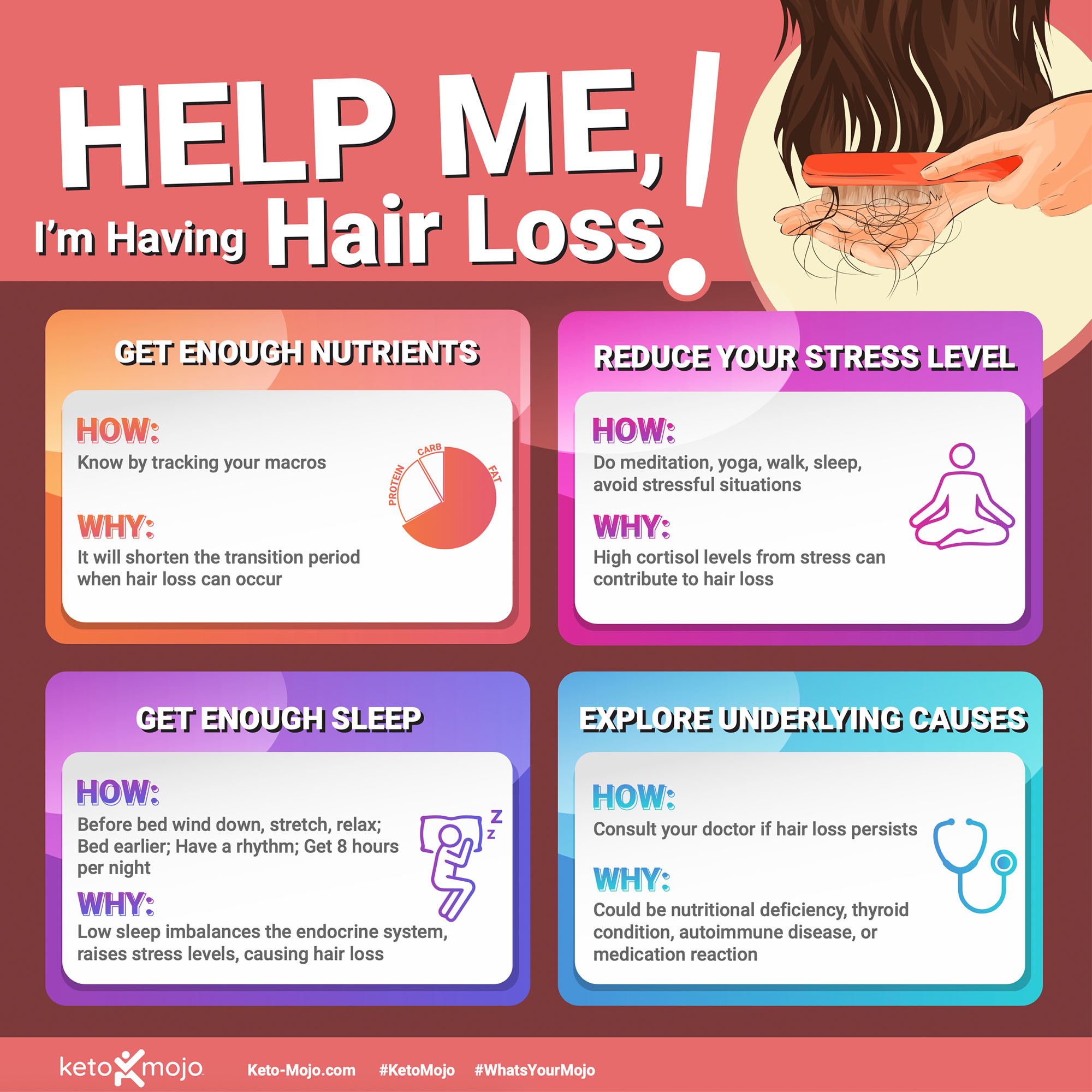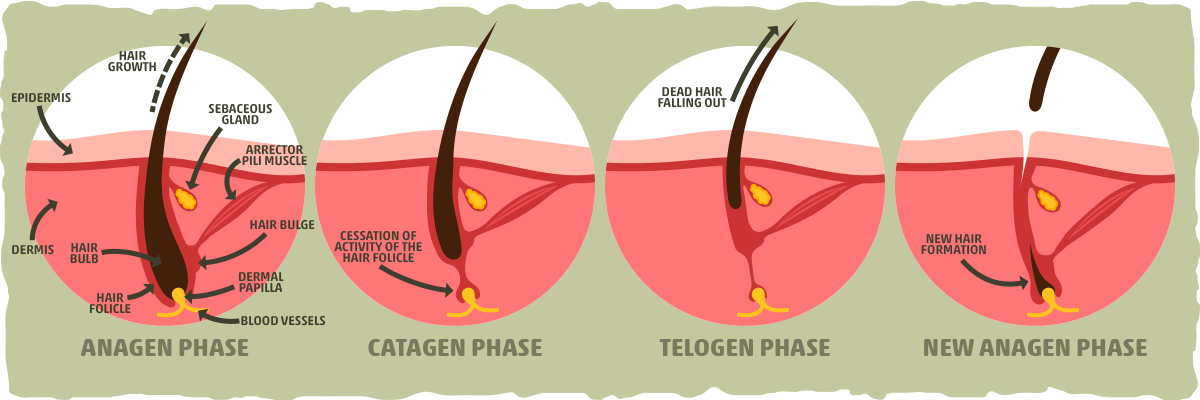While the keto diet has gained popularity for its potential weight loss benefits, some individuals have raised concerns about its impact on hair health. Hair loss can be alarming, especially for those who are new to this high-fat, low-carb dietary regimen. Is there a connection between keto and hair loss, or are these concerns unfounded?
Transitioning to a ketogenic diet can indeed cause temporary hair loss due to changes in nutrient intake. Historically, drastic dietary changes are known to trigger telogen effluvium—a condition where stress leads to hair shedding. However, ensuring an adequate intake of vitamins and minerals, particularly biotin and zinc, can mitigate these effects and support overall hair health.

Understanding the Keto Diet
The keto diet, or ketogenic diet, is a low-carb, high-fat diet that aims to put your body into a state called ketosis. In ketosis, your body burns fat for fuel instead of carbohydrates. This switch can help some people lose weight more effectively.
A typical keto diet restricts carbohydrate intake to about 20-50 grams per day. Foods high in fats like avocados, cheese, and nuts become staple items. Protein intake is moderate but not as restricted as carbs.
An interesting aspect of the keto diet is its origin. Initially, it was developed in the 1920s to treat epilepsy in children. Since then, it has gained popularity for other health benefits, including weight loss and improved mental focus.
For those starting a keto diet, it is crucial to plan meals carefully. Ensuring you get enough nutrients from allowed foods is essential. Supplements may also be necessary to maintain a well-balanced diet.
The Keto Diet and Hair Loss: Is There a Connection?
Many people wonder if the keto diet might cause hair loss. This concern often arises due to sudden dietary changes. Hair loss can be troubling, especially if you’re seeing significant shedding.
Potential Reasons for Hair Loss
One possible reason for hair loss on the keto diet is nutrient deficiency. Cutting out certain food groups can lead to a lack of essential vitamins and minerals. This deficiency can affect your hair health.
Stress is another factor that can contribute to hair loss. Adapting to a new diet can be stressful for your body. This stress might trigger hair shedding.
Telogen effluvium is a temporary form of hair loss. It occurs when your body undergoes sudden changes. Switching to a keto diet can sometimes trigger this condition.
Scientific Studies and Findings
Research on the link between keto diet and hair loss is still ongoing. Some studies suggest that nutrient deficiencies are a primary cause. Lack of biotin, zinc, and other vitamins is often cited.
Other studies indicate that stress and rapid weight loss can be contributing factors. These stressors can lead to telogen effluvium. While more research is needed, these findings provide some insights.
It’s important to note that not everyone on a keto diet experiences hair loss. Individual responses can vary widely. Proper nutrition and stress management may help mitigate this issue.
Managing Hair Health on a Keto Diet
Ensuring adequate nutrient intake is crucial. Incorporate foods rich in biotin, zinc, and vitamins to support hair health. These nutrients can be found in foods like eggs, nuts, and leafy greens.
Monitoring your stress levels is also important. Practices such as meditation, yoga, or even regular exercise can help. Reducing stress can have a positive impact on hair health.
Consulting with a healthcare provider or nutritionist may also be beneficial. They can offer guidance on maintaining a balanced diet. This can help you avoid nutrient deficiencies and manage hair health effectively.
Causes of Hair Loss on the Keto Diet
There are several reasons why someone might experience hair loss on the keto diet. Nutrient deficiencies are a common cause. When you cut out many food groups, you might miss out on essential vitamins and minerals.
Rapid weight loss can also lead to hair shedding. Your body sees this quick change as stress. Stress, in turn, can trigger telogen effluvium, a condition where hair falls out temporarily.
Another factor is inadequate protein intake. Even though the keto diet includes moderate protein, some people might still not get enough. Hair is made up of a protein called keratin, so insufficient protein can affect hair health.
Lastly, hormonal changes can contribute to hair loss. Shifting from a high-carb to a low-carb diet can alter hormone levels. This change might affect your hair growth cycle.
How to Prevent Hair Loss while on the Keto Diet
Preventing hair loss while on the keto diet requires careful planning. Ensuring you get enough nutrients is crucial. Focus on foods rich in vitamins and minerals.
- Include biotin-rich foods like eggs, nuts, and seeds.
- Add zinc-rich foods such as meat and shellfish.
- Consume a variety of vegetables to ensure vitamin intake.
Protein plays a vital role in maintaining hair health. Make sure you’re consuming enough protein daily. Consider adding lean meats, fish, and dairy to your diet.
Hydration is also essential. Drink plenty of water to stay hydrated. Dehydration can have a negative impact on hair health.
Managing stress can prevent hair loss too. Stress-relieving activities like yoga and meditation can be beneficial. Regular exercise can also help keep stress in check.
Lastly, consider taking supplements. Consult with a healthcare provider before starting any supplements. They can recommend the right ones based on your individual needs.
Case Studies: Individuals’ Experiences with Hair Loss on the Keto Diet
Many people have shared their experiences with hair loss on the keto diet. Jane, a 34-year-old woman, noticed significant hair shedding after three months on the diet. She initially panicked but decided to consult a nutritionist.
The nutritionist discovered that Jane was deficient in several key nutrients. After adjusting her diet to include more biotin and zinc, her hair health improved. Jane also incorporated stress-management techniques like yoga.
John, a 28-year-old man, had a similar experience. He started losing hair just two months into the keto diet. John realized that he hadn’t been consuming enough protein.
Upon increasing his protein intake, John saw a decrease in hair loss. He started eating more lean meats and dairy products. Additionally, he took up regular exercise to manage stress.
Another example is Susan, who followed a keto diet for weight loss. She noticed thinning hair around the fourth month. Susan took multivitamin supplements after consulting her doctor.
These case studies highlight the importance of a balanced diet. Consuming the right nutrients and managing stress can help prevent hair loss on the keto diet. Consulting healthcare providers for personalized advice is also beneficial.
Other Possible Side-effects of the Keto Diet
The keto diet can offer various benefits, but it’s also associated with some side effects. One common issue is the “keto flu,” a set of symptoms that can make you feel unwell. These symptoms may include headache, fatigue, and nausea.
Another potential side effect is digestive issues. Some people experience constipation due to the low-fiber nature of the diet. Adding fiber-rich foods like leafy greens can help alleviate this problem.
- Bad breath, often described as having a fruity odor.
- Reduced physical performance initially, as your body adapts to burning fat for fuel.
- Increased hunger and cravings for high-carb foods.
Kidney stones can also be a concern. The high-fat, low-carb nature of the diet can affect kidney function. Staying hydrated and maintaining a balanced intake can help minimize this risk.
High cholesterol levels might also occur. Consuming large amounts of fatty foods can elevate cholesterol. Regular check-ups with a healthcare provider can help monitor this.
Lastly, there might be an increased risk of nutrient deficiencies. Key vitamins and minerals might be lacking due to restricted food groups. Supplements and a well-planned diet can help mitigate these deficiencies.
Key Takeaways
- Hair loss on the keto diet can be due to nutrient deficiencies.
- Rapid weight loss might trigger temporary hair shedding.
- Stress from diet changes can also affect hair health.
- Adequate intake of vitamins and minerals like biotin is essential.
- Not everyone on the keto diet will experience hair loss.

Frequently Asked Questions
Here are some common questions about hair loss and the keto diet. Understanding these can help manage your health better on this diet.
1. What nutrients are important to prevent hair loss on a keto diet?
Nutrients like biotin, zinc, and vitamins B and D are essential for hair health. Including foods rich in these nutrients can help prevent hair loss while on the keto diet.
You can find these nutrients in eggs, nuts, seeds, meat, and leafy greens. If needed, consider taking supplements after consulting with a healthcare provider to ensure you’re meeting your nutritional needs.
2. How quickly can hair loss occur on the keto diet?
Hair loss can occur within the first few months of starting the keto diet due to rapid bodily changes. The timing varies from person to person and depends on individual metabolism and nutrient intake.
This temporary condition often resolves once your body adjusts to the new diet regime. Ensuring a balanced intake of essential nutrients can speed up recovery.
3. Can stress from starting a new diet cause hair loss?
Yes, stress-related hair loss is known as telogen effluvium, which can be triggered by sudden dietary changes like starting the keto diet. Managing stress through mindfulness techniques or exercise is crucial for maintaining overall health.
Avoiding unnecessary stressors and ensuring adequate sleep aids in reducing this side effect. These practices support not just hair health but overall well-being too.
4. Will increasing protein intake help reduce hair shedding?
Yes, increasing protein intake can positively impact hair health because hair is primarily made of keratin, a type of protein. Foods like lean meats, fish, dairy products, nuts, and seeds are excellent options to include more protein in your diet.
If you suspect low protein levels might be causing your hair loss, adjusting your meal plans can make a significant difference. Consulting with a nutritionist may offer personalized insights tailored to your specific dietary needs.
5. Are there any long-term effects of staying on a keto diet regarding hair health?
The long-term effects on hair health when following a keto diet largely depend on how well you manage nutrient intake over time. Consistent monitoring and adjustments ensure that potential deficiencies do not negatively impact your overall well-being.
If properly maintained with adequate vitamins and minerals through food or supplements, many people experience improved health markers without severe issues related to their hair or other aspects of wellness.

Conclusion
The keto diet offers many benefits but can also bring about concerns like hair loss. Ensuring a balanced intake of essential nutrients such as biotin and zinc can mitigate these effects. Stress management and proper hydration are also key to maintaining hair health.
Each individual may experience different reactions to the keto diet. Regular consultations with healthcare providers can provide personalized advice. With the right approach, you can enjoy the benefits of the keto diet while minimizing potential side effects like hair loss.
